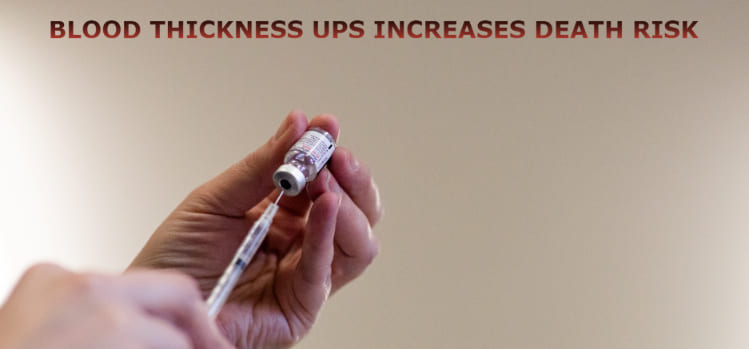A problem has been seen in patients who got admitted with Covid-19. In their body blood flows less freely than normal. A U.S. study showed that these patients are at higher risk of death from complications. The findings of the study indicated that measurement of blood viscosity, or blood thickness, should be a regular part of these patients’ medical work-up.
“This study demonstrates the importance of checking for blood viscosity in COVID-19 patients early in hospital admission, which is easily obtained through routine lab work,” Dr. Robert Rosenson of the Mount Sinai Health System said in a statement. His team called for further studies to see whether measures to reduce blood viscosity, such as treatment with blood thinning drugs, would be helpful.
Increase in Blood Thickness
“Any child who experiences potential anaphylaxis following vaccination should absolutely be evaluated,” study leader Dr. Joel Brooks of Children’s National Hospital in Washington said in a news release. “The benefits and risks must be weighed carefully when it comes to a second dose. However, we have demonstrated that for this study, most of the initial allergic reactions did not meet the criteria of anaphylaxis and our participants were able to tolerate a second dose of the vaccine.”
According to Reuters, “High blood viscosity impairs flow to small vessels and increases the risk of blood clots, the researchers noted in the study published on Monday in the Journal of the American College of Cardiology. Data on 5,621 COVID-19 patients treated at six New York City-area hospitals between February 2020 and November 2021 showed that patients with high viscosity had death rates 38% to 60% higher than those with low blood viscosity. The inflammation associated with COVID-19 likely contributes to high viscosity, which in turn can lead to damage to blood vessel linings and clogging of arteries, according to the researchers.”
Read Our Latest Blog: Top 5 Countries Offering Unique Healthcare Services






